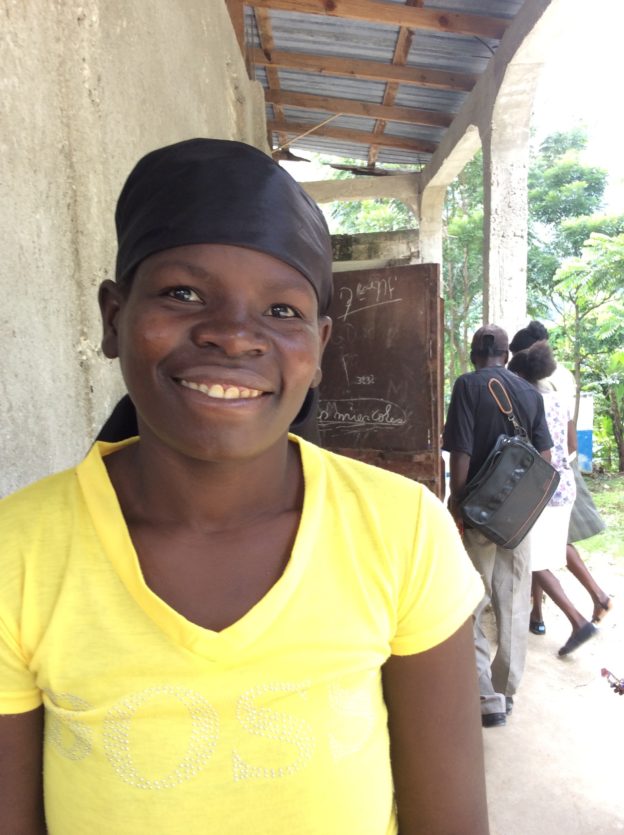Juslène still seems lost.
She sits cheerfully in the classroom as a case manager opens the workshop. She and her fellow CLM members from the area around Koray Grann will spend three days together, going over the way they manage their new assets – almost all livestock – and how they have set out on the other aspects of the program, like home repair. She looks around as members talk or shout or sing. She never seems to focus for long on anything in particular. Others learn quickly to applaud in rhythm to offer encouragement. It’s a CLM custom: clap-clap-clap-clap, clap-clap-clap-clap, clap-clap-clap-clap, clap. But Juslène can’t pick up the beat.
She’s been in the program for three months, but can’t remember that. She can’t say when she started. But she sits smiling as we chat, looking left, right, always away but always cheerful. She’s happy in the program. “They gave me goats. They’re going to give me a house.”
But we talk about the house. The program provides roofing material and money to pay builders, but members have to provide the structural lumber and the material for walls. Around Gwa Labou, where Juslène lives, they use palm wood planks. It’s a lot to manage. She answers me quickly when I ask her whether she’ll be able to organize her part of the work. “I can.” But when I ask her how she will get the work done, she says she doesn’t know. Her husband will find the support posts, but she’ll need to buy the planks, and she has no idea where the money will come from.
But it is important to her. She’s been living in his sister’s house ever since her own was destroyed by a storm. She doesn’t like it. Her sister-in-law treats her well, but she says, “M pa renmen rèt kay moun.” That looks easy to translate. It looks like it means, “I don’t like living in someone [else’s] home.” But the Creole is stronger than that because “ret kay moun” carries a sense of homelessness, a sense of the status of restavek, the Haitian children who live as domestic servants.
When it came time to think about where to build her new house, her father decided to rent a plot well downhill of the place she’s been living. Her husband has begun to assemble the support posts her house will need. “My life will change when I’m in my own house, but it hasn’t changed yet,” she says. The house, which is the part of the program most important to Juslène, will depend entirely on the two men.
